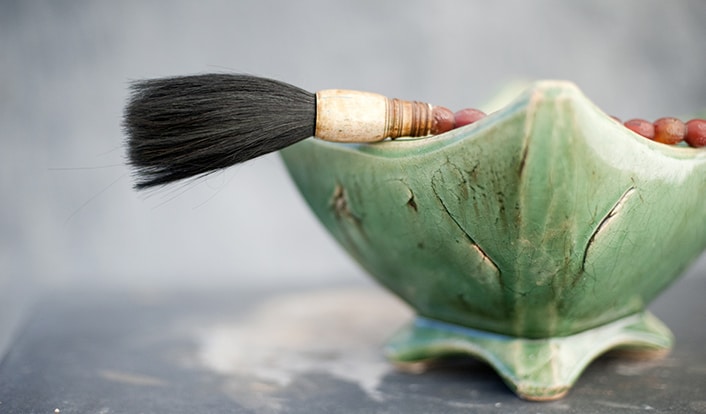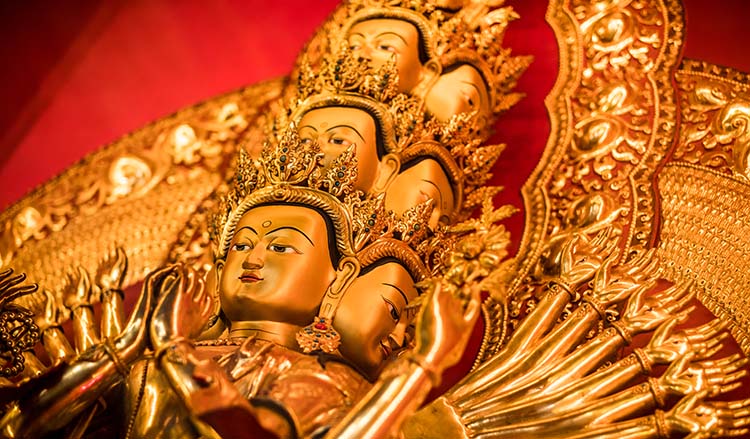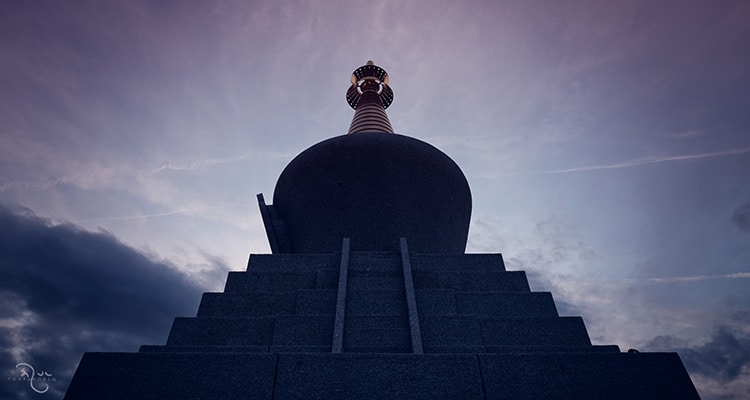Discovering Genuine Confidence through Meditation
Category: Mind Trainer Articles | Mindfulness and Awareness

Unconditional goodness and self-worth
There’s a big difference between ordinary confidence and genuine confidence. You could say that ordinary confidence is based on some kind of reference point or relationship. Often, if you feel confident it’s because you’re comparing your abilities with those of someone else, or it might have to do with something in the outside world that you’re relating to. So what is genuine confidence? Genuine confidence has very little to do with comparisons and relationships. It is actually based on an unconditional experience of your own goodness and sense of self-worth, regardless of circumstances. We can experience this through meditation.
Unfortunately, in today’s society it’s increasingly difficult to maintain a sense of self-worth, and therefore the experience of genuine confidence remains elusive. We might say that a lack of self-worth or self-esteem is one of the biggest problems we face, and it manifests in many ways. Tragically, low self-esteem is good for business! In the material world, there are advertisements of all kinds suggesting that we could and should be more this, less that. Maybe an ad is asking us to buy shampoo so that our hair is more beautiful. Somehow it triggers something in us because we have this lack of self-confidence, not just about our hair, but about our own self-worth in general.
All kinds of images and reference points belonging to the outside world are used to reinforce the inferiority complex that we all have to some degree. Marketing presents us with the image of an attractive air-brushed woman or buff man with six-pack muscles, and somehow we wind up comparing ourselves to those people, which inevitably makes us feel worse. The make-pretend world lets us know that we’re not good enough—it erodes our self-image and suggests unrealistic solutions for building it back up.
It’s not only about physical appearances; our lack of confidence also expresses itself in terms of our psychological experiences and emotions. If we get into a challenging situation while working with others, for example, it might be embarrassing. Maybe someone says something to us that makes us feel exposed or inadequate. We don’t like that—nobody likes that. The embarrassment is somehow another reminder that we’re just not good enough.
Our habit is to reinforce the barrage of feedback from the outside world by continuously thinking about things that have bothered us or made us feel uncomfortable. We’re constantly rewinding those situations and the feelings they trigger and replaying them again and again. That’s our basic confused way of relating to both the outside world and to ourselves. It makes us feel stuck, it makes us feel awful, but…
Our ticket out of the cycle of dependency is meditation
There’s another way! It involves connecting with a sense of our real worth, our innate worth. That’s where genuine self-confidence comes from. But we can’t just make it happen by wishing it to be so. Even if we’re able to see things clearly and recognize the patterns, our habits are too deeply ingrained: we need to break the patterns. And how do we learn to do this? Through meditation. That’s our ticket out of the cycle of dependency on outer causes and conditions, and into our own self-confidence and well-being.
How can meditation practice help? What magical thing happens when you meditate? When you meditate, you sit simply and watch your breath without judgment. Breath, your reference point, is a natural component of life. By centering your attention on the breath, you’re abdicating any sense of comparison; you’re sitting without judgment.
As you practice meditation, all kinds of things appear in the mind. Maybe it’s that moment of embarrassment that you replay over and over again. Maybe it’s a sense of indignation about being unfairly criticized. Maybe it’s a fleeting moment of triumph. No matter what it is, you come back to the breath. Each time, come back to this basic sense of being.
What happens is that very gradually, very organically, you begin to distance yourself from the story line that your thoughts are presenting you with. The emotional thought process doesn’t seem quite so sticky and real; it’s less liable to take control of you, to monopolize your attention and undermine your self-confidence. When you can relax into letting go of the story line, you can also let go of the tensions that are associated with it. This leads to a profound sense of well-being.
As your meditation becomes increasingly stable, you become more and more invested in that moment of well-being. In that moment of well-being, you’re just there. There’s no reference point. It’s actually not good, not bad, not anything. It’s just being, and it’s so comfortable. And that sense of being is where genuine confidence comes from. It comes from being able to rest in a natural state of mind, being able to relax, without having to concern yourself with all of the external reference points or the confidence-eroding thoughts they can trigger. That’s how meditation practice is the key to discovering and building genuine confidence.
To be clear, genuine confidence has nothing to do with being better or worse than anyone else. We don’t boost our genuine confidence by undermining other people’s. It doesn’t work that way. Everyone has this basic goodness within them, and everyone has the ability to connect with it. When we connect with our own goodness, our own confidence, we can actually radiate that. And so instead of burdening others with a sense of negativity, jealousy and competitiveness, we can radiate a sense of openness, acceptance, honesty, joy and kindness and all those good qualities. It’s a much better way to behave in the world, don’t you think? And it all comes about through meditation practice: through uncovering a basic sense of well-being and discovering genuine confidence.
This article was adapted from Bart Mendel’s Mind Talk video “Discovering Genuine Confidence.” Mind Talks are available on Mindworks Meditation Courses.






